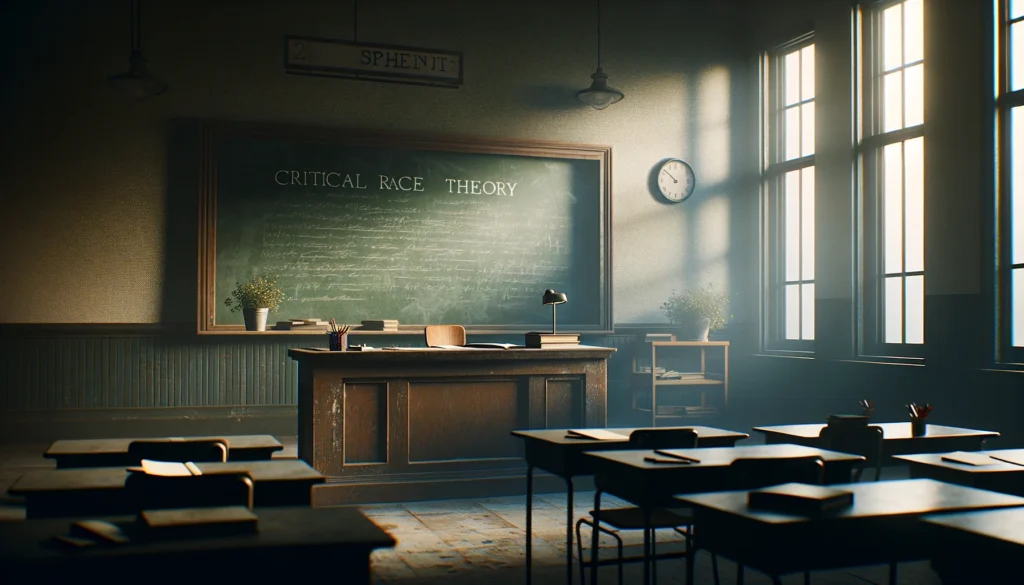
Exploring the Impact of Arkansas’ CRT Ban on Teachers, Curriculum, and Students in Public Schools.
By Darius Spearman (africanelements)
Support African Elements at patreon.com/africanelements and hear recent news in a single playlist, plus get early access to ad-free video content.
Arkansas’ Critical Race Theory Ban and Its Background
In 2023, Arkansas took a decisive step against what it termed “indoctrination and critical race theory” in public schools through an executive order (Axios NW Arkansas). This move aims to shield students from teachings that, in the state’s view, diverge from the principle of equal protection under the law. The ban’s proponents argue it preserves educational neutrality. Ostensibly, they advocate for classrooms to remain places of learning rather than political battlegrounds.
Moreover, the legislation specifically prohibits the instruction of ideologies that officials believe conflict with constitutional equality guarantees (EdWeek). This encompasses any pedagogical approach or content that might suggest America upholds systemic inequalities. Additionally, the law bands curriculum that acknowledges racism as part of America’s foundational structures. Consequently, this broad interpretation has sparked a considerable debate regarding academic freedom. Further, It has intensified discussion over the role of education in addressing historical and contemporary social issues.
The Effect of Arkansas’ CRT Legislation on Teachers
Teachers across Arkansas now navigate a landscape where political considerations significantly influence their instructional methods. According to Axios NW Arkansas, many educators feel “politicized” due to the constraints imposed on their teaching content. This sentiment reflects a broader concern that legislative measures are dictating the boundaries of academic discourse. Importantly, these restrictions have led to a cautious approach to curriculum development. Thus, teachers have become wary of crossing undefined lines that could jeopardize their careers.
Furthermore, a social studies teacher highlighted the dilemma faced by educators striving to provide a comprehensive education.
“It’s impossible to teach literature without looking at it from a modern lens, which must address systemic racism,” (Axios NW Arkansas).
This statement underscores the tension between adhering to the new regulations and fulfilling an educational duty to offer students a nuanced understanding of societal issues. Teachers are thus at a crossroads. They find themselves caught between the mandates of legislation and the imperatives of pedagogical integrity.
Curriculum Adjustments Following Arkansas’ Critical Race Theory Ban
The ban’s effects ripple through the curriculum in Arkansas’ public schools, reshaping educational content. Surveys conducted by Axios NW Arkansas reveal that none of the 12 schools examined teach critical race theory or “The 1619 Project”. This finding suggests a significant shift in how schools approach subjects related to race and American history. Educators are evidently recalibrating their curriculum to align with the new legal framework. Consequently, instructors feel increasing pressure to sidestep materials that could potentially fall foul of the ban.
In an attempt to adapt, some schools have introduced Advanced Placement courses in African American Studies. However, these courses currently do not meet the compliance criteria set by the ban (Axios NW Arkansas). The state’s educational authorities are considering the development of an honors version of the existing African American history course. This move indicates an ongoing effort to find a middle ground. They face the difficulty of conforming to both the legislative mandate and the educational need to offer diverse perspectives on American history.
Student Perspectives and Learning Under Arkansas’ CRT Restrictions
The educational landscape in Arkansas has transformed. Potentially, it leaves students with a less comprehensive understanding of history. As reported by Axios NW Arkansas, there is reluctance among teachers to discuss racism. They fear contravening the ban, means students may not fully grasp the complexities of historical and current societal structures. This hesitancy undermines the depth of education. Further, it restricts students’ exposure to critical analyses of America’s past and present.
A social studies teacher shared their aspiration to convey the unvarnished truth about America’s history to their students
“My goal is to tell [students] the truth about what has happened in America and impart to them that there’s no such thing as a perfect country,” (Axios NW Arkansas).
This reflects a commitment to education that transcends legal limitations. Educators strive to equip students with a balanced and honest understanding of their country’s history. Yet, the challenges posed by the ban complicate this mission. It potentially leaves students with a sanitized narrative that glosses over crucial aspects of the American story.
Analyzing the Long-Term Implications of Arkansas’ CRT Ban on Education
The CRT ban in Arkansas has markedly impacted educators, the curriculum, and students. Teachers, feeling restricted in their teaching methods, navigate a challenging environment. The current climate demands a delicate balance between compliance and comprehensive education. This situation, as highlighted by Axios NW Arkansas, raises concerns about the politicization of educational content and the potential stifling of academic freedom.
Students, on the other hand, may not be receiving a complete understanding of history due to the cautious approach adopted by educators wary of discussing racism and systemic issues. The long-term effects of the ban remain to be seen, but the immediate impact suggests a narrowing of the educational scope. This development raises important questions about the role of education in fostering a well-informed and critically thinking citizenry. The dialogue around these issues continues, reflecting a broader national conversation about history, race, and the purpose of education.
About the author:
Darius Spearman is a professor of Black Studies at San Diego City College, where he has been pursuing his love of teaching since 2007. He is the author of several books, including Between The Color Lines: A History of African Americans on the California Frontier Through 1890. You can visit Darius online at africanelements.org.
